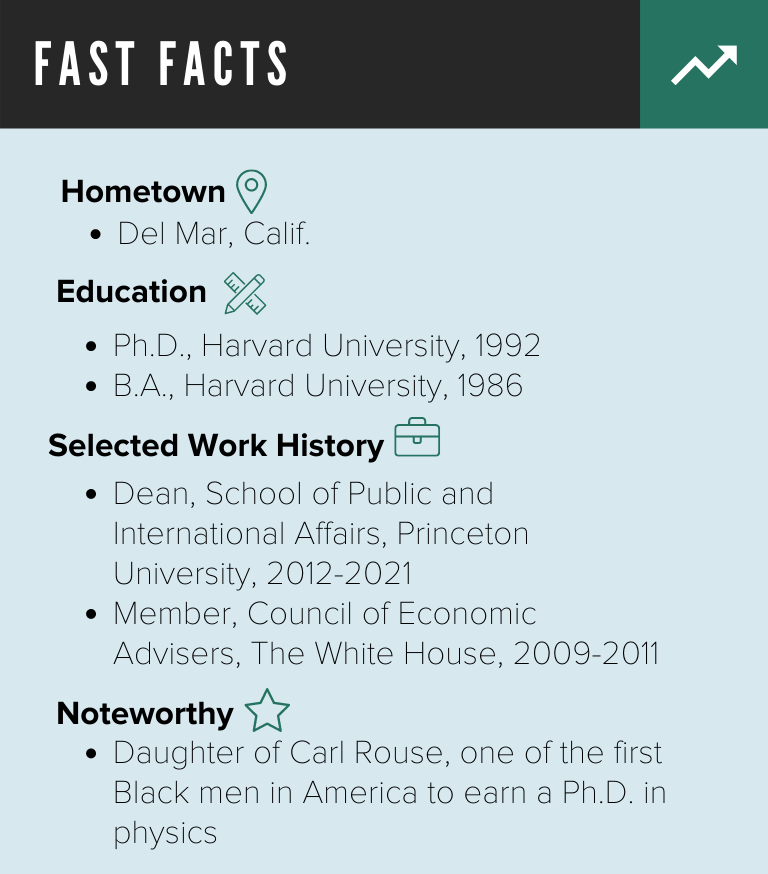Chair, Council of Economic Advisers
Fast Facts

Expert on Equitable Economic Policy

LEARN MORE
Vignette, a service through National Journal Research, is an essential tool for government affairs teams that need to understand the people behind the policies.
Click here to request a demo of the Vignette database, or email njvignette@nationaljournal.com to speak to someone about your access.
Had President Biden not tapped Cecilia Rouse for a second stint on the Council of Economic Advisers—this time as chair—he may have found a spot for her at the Education Department. After all, much of the Princeton economist’s research has focused on college affordability, student engagement, and improving the education gap for low-income students.
Rouse has found that scholarships for students positively affect their effort and quality of work. She led research that revealed a sizable percentage of community college students do not finish their first year. She also played a key role in President Obama’s Student Aid and Fiscal Responsibility Act, which invested heavily in historically Black colleges and universities.
Rouse obtained both a bachelor’s degree and a Ph.D. in economics from Harvard University and joined the faculty of Princeton soon after. She rose to prominence for a study she coauthored in 2000 about sexist hiring practices in symphony orchestras, finding that female members were hired at much higher rates during blind auditions. She paused her work at Princeton twice, first to serve on President Clinton’s National Economic Council and later in Obama’s CEA. With her Senate confirmation in March, Rouse became the first Black woman to chair the council. She aims to focus her work on an equitable economic recovery from COVID-19.
Approach and Motivations
Excerpted from Cecilia‘s Vignette profile
Applies her academic expertise to systemic policy challenges and has a personal passion for providing equitable access to economic opportunities for those who are disadvantaged
- Inspired to take a course in economics at the urging of her mother during her freshman year at Harvard, a time that saw a spike in unemployment across the country; continued with the subject ever since and says she is energized by the application of economics to social problems
- A minority in her own field, Rouse is a strong advocate for diversity and inclusion; centers equity in her research and policy advocacy
- Leveraging experience in academia and in the White House, Rouse says she learned to effectively translate academic research for policymakers and wider audiences, an ability essential to her role as chair of the CEA
Not a Vignette subscriber? You can purchase a digital book with in-depth profiles on everyone featured in this special report.
To learn more about Vignette, or see the platform in action, request a demo here.

